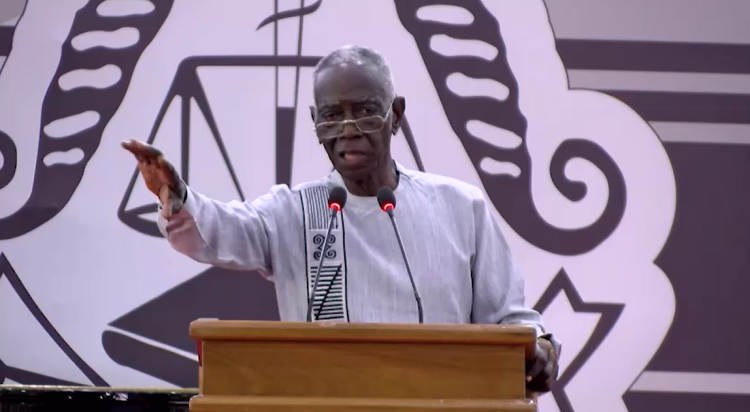Jessica Oforiwa, a 35-year-old caterer and hairdresser, has been sentenced to five years in prison for stealing GH₵81,060 from GCB Bank customers using cloned cheques.
Oforiwa was convicted on seven charges, including abetment of crime and stealing, with the sentences running concurrently. Her accomplices—Dawda Sawdido, Mohammed Muktar, Fuseini Saeed Ibrahim, Felix Mensah, Lawrence Quarshie, and Philip Ansah—remain at large.
The court considered Oforiwa’s status as a first-time offender and mother of two but emphasized that her actions were deliberate and premeditated. She played a significant role in helping the fugitives misappropriate funds from the bank.

Assistant Superintendent of Police (ASP) Seth Frimpong, who led the prosecution, requested a deterrent sentence, citing the rising number of similar crimes that are destabilizing financial institutions and the economy.
In 2022, GCB Bank discovered that eight cheques had been cloned from customers’ accounts, resulting in a total withdrawal of GH₵81,060. Victims included Rejoice Emekor Senezah, who had GH₵12,000 stolen on January 10, 2022, and Felcon Electrical Enterprise, which lost GH₵47,460 on April 13, 2022. Investigations revealed the cloned cheques were issued to Oforiwa’s company, Jesnat Cook Company.
Oforiwa and her accomplices used chemical methods to erase account details and signatures on the original cheques, making them appear legitimate.
The group successfully withdrew large sums, with individuals such as Dawda Sawdido withdrawing GH₵4,700 and Mohammed Muktar withdrawing GH₵9,700 in total.
On August 1, 2022, Philip Ansah and Livingston Ankomah attempted to withdraw GH₵4,700 using a cloned cheque at the Kaneshie branch and tried to take another GH₵3,000 from the Kwame Nkrumah Circle branch, leading to their arrest.
Ankomah confessed and was later imprisoned for his role in the scheme.
Oforiwa was arrested on December 24, 2022, by the Kwahu Nkwatia Police. During questioning, she admitted to using the Jesnat Cook cheques to steal GH₵81,060 and suggested that her boyfriend, Samuel Gyane Nyanteh, might have been involved.
The judge, after the verdict, urged financial institutions to strengthen their ICT systems and train staff, particularly tellers, to scrutinize cheques and other financial instruments thoroughly to prevent such fraud. The court emphasized the importance of safeguarding shareholder and depositor interests to maintain public trust.
























































![[FREE FREE MONEY] Predict and Win a Guaranteed GH¢200 From Us EVERY WEEK](https://wordpress.ghanatalksradio.com/wp-content/uploads/2022/02/Predict-and-Win-Final-09-03-2021-218x150.jpg)
![[Predict & Win – 8th/Oct.] WIN A Guaranteed ¢200 From Us This Week](https://wordpress.ghanatalksradio.com/wp-content/uploads/2021/10/maxresdefault-16-218x150.jpg)
![[Predict & Win – 2nd] WIN A Guaranteed ¢200 From Us This Week](https://wordpress.ghanatalksradio.com/wp-content/uploads/2021/09/maxresdefault-50-218x150.jpg)
![[Predict & Win – 25th] WIN A Guaranteed ¢200 From Us This Week](https://wordpress.ghanatalksradio.com/wp-content/uploads/2021/09/maxresdefault-36-218x150.jpg)
![[Predict & Win – 18th] WIN A Guaranteed ¢200 From Us This Week](https://wordpress.ghanatalksradio.com/wp-content/uploads/2021/09/maxresdefault-23-218x150.jpg)









![[National cathedral] See full list of churches that have contributed since 2018](https://wordpress.ghanatalksradio.com/wp-content/uploads/2020/09/Ghana-National-Cathedral-GhanaTalksRadio-100x70.jpg)


